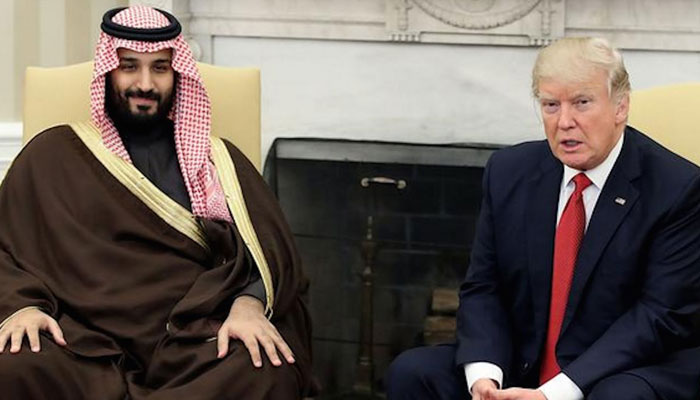Saudi Arabia looks to assert regional role with Trump summit
May 19, 2017

RIYADH: Saudi Arabia is looking to assert its regional leadership by hosting a summit between visiting US President Donald Trump and Muslim leaders from around the world, analysts say.
Trump, on his first foreign trip since taking office in January, will tell Muslim leaders of his "hopes for a peaceful vision of Islam" as he seeks support for the war against radicals, Washington has said.
Muslim leaders may also be looking for Trump to build bridges after allegations of Islamophobia against his administration and its effort to bar travellers from six Muslim-majority countries.
But for Riyadh, analysts say, a primary goal is to showcase its leadership of the Muslim world, especially in the face of regional rival Iran.
"This is as much a sign of Saudi regional leadership" as of US assertiveness, and aims to show the extent to which the kingdom can gather key Muslim leaders, said Adam Baron, a visiting fellow at the European Council on Foreign Relations.
Leaders and representatives of 55 countries -- from the southeast Asian sultanate of Brunei to Africa´s Niger and heavyweights including Turkey -- have been invited by King Salman for Sunday´s summit with Trump.
The summit will be one of three weekend meetings, as Trump holds bilateral talks with top Saudi officials and with leaders of the six-nation Gulf Cooperation Council (GCC) which includes Saudi Arabia.
The bilateral summit on Saturday comes with Saudi leaders rebuilding crucial ties with Washington after feeling that Trump´s predecessor Barack Obama tilted too much toward Tehran.
The 2015 nuclear deal between Iran and six world powers including the United States was a major step toward ending Tehran´s international isolation but raised serious concerns in Arab capitals.
Doing ´the dirty work´
Iran, which holds a presidential election on Friday pitting moderate incumbent Hassan Rouhani against hardline jurist Ebrahim Raisi, is likely to loom large over Sunday´s summit, analysts said.
"This summit has a very clear message to the radical Iranian regime that there will be a global consensus and global agreement between the United States and the Arab and Muslim world," said Salman al-Ansari, president of the Saudi American Public Relation Affairs Committee (SAPRAC), a private initiative to strengthen Saudi-US ties.
The summit is part of preparations for a new US strategy mobilising the Muslim world against Daesh, as well as against groups such as Lebanon-based Hezbollah, said Mustafa Alani, a senior adviser to the Gulf Research Centre.
"I think this is going to be important because it´s supposed to translate into action on the ground, financial participation, troop participation, intelligence exchange."
Alani said the new US administration recognises that Saudi Arabia is a "super-regional state" whose help is required to contain Iran and combat "terrorism".
"We are witnessing now a change in the tone, change in policy" from Trump, he said.
Krieg agreed Trump needs a partner -- but one to do "the dirty work" for a country that does not want its own military deeply involved, reflecting Trump´s policy of "America First".
"In the end ´America First´ means using the GCC and Arab partners as proxies and surrogates, propped up with US equipment and training (paid for by these partners), to implement US policy," he said.











